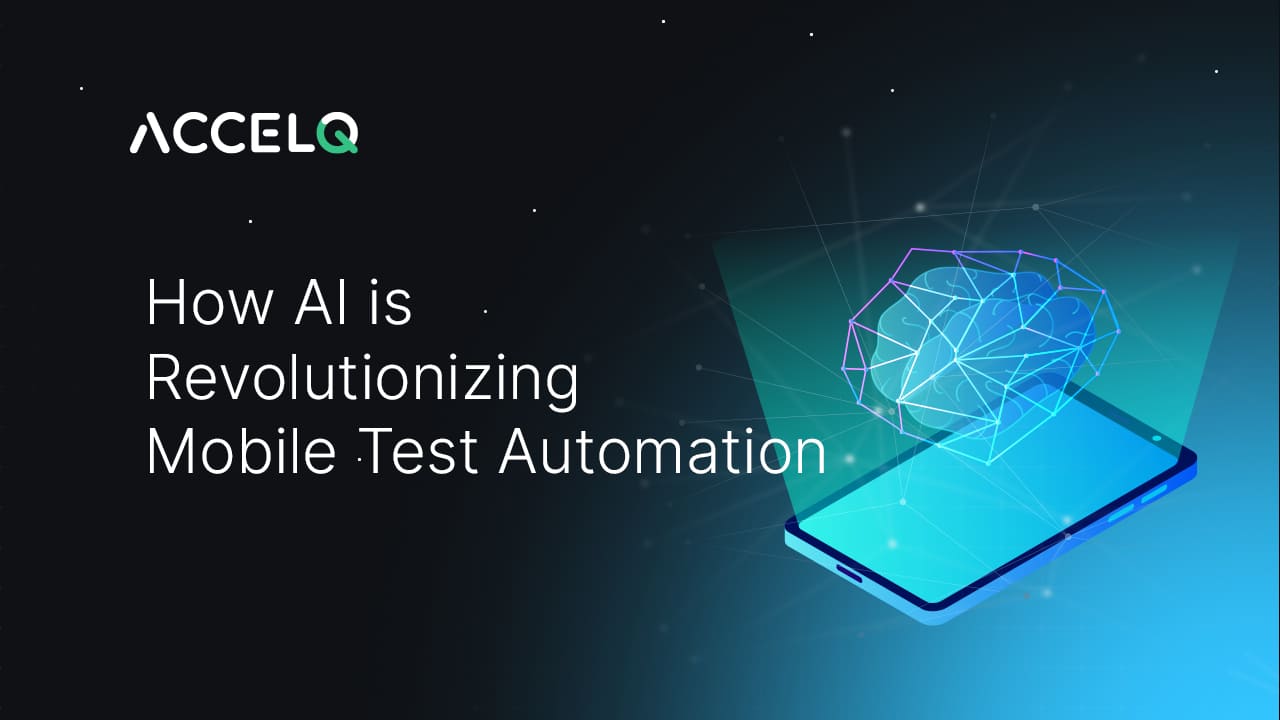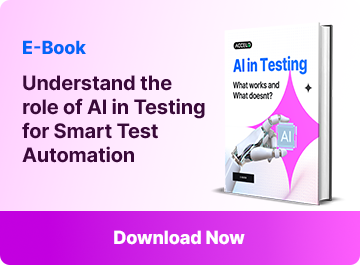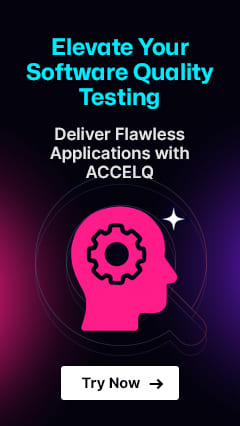Revolutionizing the AI Mobile Automation Testing

AI mobile testing transforms by increasing efficiency, accuracy, and adaptivity. Traditional testing approaches sometimes fail to keep up with the fast development cycles of modern mobile apps. AI is making test automation processes more intelligent and responsive.
This process can recreate real-world scenarios, anticipate potential errors, and run tests at new speeds. This not only shortens testing time, but also enhances the overall quality of mobile apps. ChatGPT, for example, helps testers create test cases, deliver real-time feedback, and speed up debugging.
As mobile applications get increasingly complicated, AI-powered mobile testing guarantees that quality is maintained, making it an essential component of modern app development.
Transforming Mobile Test Automation with AI/ChatGPT
With technologies like ChatGPT driving the change, artificial intelligence has evolved into a crucial tool transforming mobile test automation. It is a potent AI language model that not only revolutionizes the way we interact with AI but also significantly contributes to optimizing the mobile testing process.
How AI Mobile Testing Works?
AI's fast and accurate data analysis makes it ideal for mobile test automation. Artificial intelligence in mobile testing relieves manual testers of repetitive tasks, letting them focus on more complicated cases. AI-driven technologies may imitate user interactions, predict problems, and recommend fixes, improving testing.
ChatGPT in Action
One of ChatGPT's best mobile testing features is test case generation. ChatGPT automatically generates relevant test cases from user requirements and app specs, delivering thorough coverage without bias. It can also analyze error logs and provide solutions to speed up troubleshooting.
Enhancing Decision-Making
Better decision-making is popular among the benefits of AI in mobile testing. AI models can forecast future challenges and offer test tactics using massive datasets from prior tests. This predictive analysis improves test efficiency and app quality by identifying crucial areas that need greater attention.
Mobile Test Automation Scenarios with AI
Artificial intelligence is changing mobile test automation by allowing more advanced and effective testing environments. These are some critical situations in which artificial intelligence is significantly influencing:
Automated Test Case Generation
Using app activity and user interactions, artificial intelligence may create relevant test cases on demand. It guarantees that all important paths are examined and helps to lower the manual work needed.
Predictive Analysis for Testing
Artificial intelligence systems can forecast application failure locations by analyzing past data and observing trends. It helps testers concentrate on more likely to have problems in regions of the software, therefore enhancing the general test efficiency and coverage.
Real-World Simulations
Tools controlled by artificial intelligence can replicate many real-world events, including user behavior, device setups, and network conditions. This guarantees dependability and resilience by helping to test the app's performance under several circumstances.
Adaptive Testing
AI facilitates adaptive testing, which involves evolving the testing process based on the outcomes of previous tests. If particular portions of the app are found to be high-risk, AI can prioritize them for more thorough testing, guaranteeing early detection of essential problems.
Continuous Integration and Continuous Deployment (CI/CD)
AI integrates CI/CD pipelines perfectly, allowing constant testing throughout the development process. This guarantees automatic testing of every code modification, lowering the possibility of mistakes finding their way into production.
Test Maintenance
AI can automatically update the appropriate test cases upon UI or app functionality changes. This guarantees that the test suite stays current with the newest software version and helps testers save maintenance effort.
Pros and Cons of AI in Mobile Testing
Here's a concise table that outlines the key advantages and disadvantages of incorporating AI into mobile testing:
| Pros | Cons |
|---|---|
| AI can manage time-consuming and repetitious activities, therefore enabling testers to work faster and concentrate on more difficult testing situations. | Establishing AI-driven testing tools can be costly in terms of software purchases as well as team training to enable proper use. |
| AI can regularly run tests with accuracy, therefore lowering the possibility of manual errors during testing. | Including artificial intelligence into the current testing procedure can be difficult and call for certain knowledge. |
| AI can replicate many user behaviors and device environments, therefore guaranteeing that the program performs effectively in many contexts. | Though effective, artificial intelligence lacks the creativity and intuition of a human tester, which might be crucial in identifying unanticipated problems. |
| AI may examine past test data to predict possible problems, enabling teams to be more aggressive in their testing strategy. | The quality of the data from AI learns on determines its effectiveness mostly. Inaccurate results of tests can result from inadequate data. |
| AI learns from every test cycle, becomes more efficient over time and changes with the app. | Over-reliance on artificial intelligence runs the danger of causing a lack of comprehensive human supervision, so allowing some problems to pass through the gaps. |
Conclusion
AI has considerably improved the capabilities of mobile test automation, allowing for automated regression tests, modeling complicated user interactions, and more accurately detecting future faults. While AI-powered solutions such as ChatGPT simplify and improve testing, it is critical to incorporate them carefully, balancing automation with human intuition.
As mobile testing evolves, integrating AI strengths with skilled human oversight will be critical to maintaining high app quality and user experience levels. ACCELQ’s AI-driven test automation platform, Autopilot, ensures a balance between AI-driven efficiency and human oversight, enhancing mobile app quality. For improved mobile test automation using AI, get your demo and ensure smooth collaboration between AI and testers.
Discover More
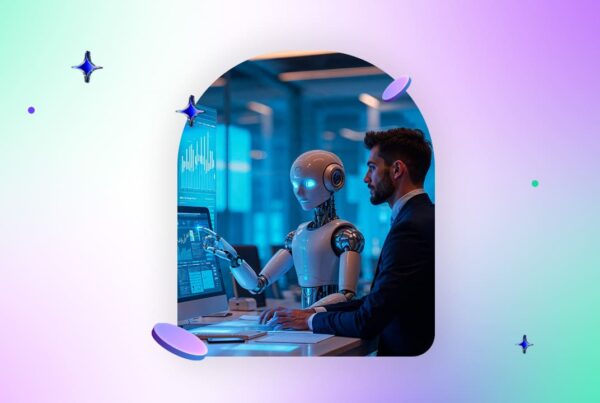 AI Agents in Testing: Smarter Automation Beyond Chatbots & Assistants
AI Agents in Testing: Smarter Automation Beyond Chatbots & Assistants
AI Agents in Testing: Smarter Automation Beyond Chatbots & Assistants
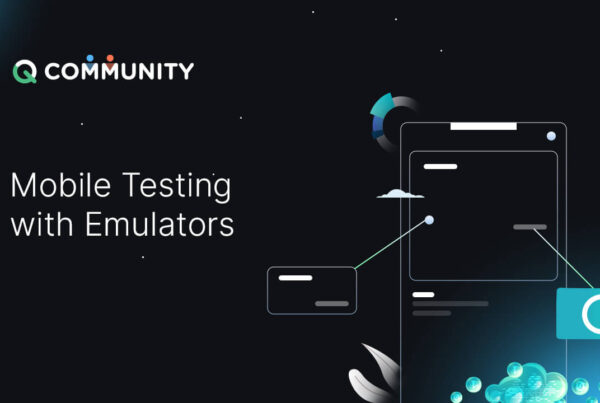 Mobile Testing with Emulator
Mobile Testing with Emulator






























